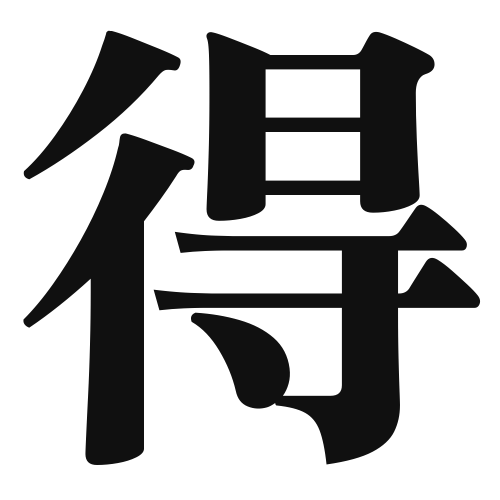1. Overview of Meaning
The kanji “得” (pronounced “toku”) generally means “to gain,” “to obtain,” or “to acquire.” It conveys the idea of receiving something beneficial or advantageous.
2. Formation and Radical
The kanji “得” is a phonetic compound (形声文字) that combines the radical for “to gain” (得) with a phonetic component. The radical itself is also “得,” which emphasizes the meaning of acquisition or benefit.
3. Examples of Usage
Common words and phrases that include “得” are:
- 得る (える, eru) – to gain, to obtain
- 得意 (とくい, tokui) – one’s strong point, proficiency
- 得点 (とくてん, tokuten) – score, points (in a game)
Example sentences in daily conversation:
- この仕事を通じて多くの経験を得ました。
(I gained a lot of experience through this job.) - 彼は数学が得意です。
(He is good at mathematics.)
4. Synonyms and Antonyms
Similar kanji with related meanings include:
- 取得 (しゅとく, shutoku) – acquisition, obtaining (more formal)
- 獲得 (かくとく, kakutoku) – acquisition, gaining (often used in contexts like awards or achievements)
Antonyms include:
- 失う (うしなう, ushinau) – to lose
- 放棄 (ほうき, houki) – abandonment, giving up
5. Cultural and Historical Background
The kanji “得” is deeply rooted in Japanese culture, often associated with the idea of personal growth and achievement. It appears in various proverbs and idiomatic expressions, such as:
- 得手不得手 (えてへた, ete heta) – strengths and weaknesses
- 得るものは多い (えるものはおおい, eru mono wa ooi) – there is much to gain
These expressions reflect the cultural emphasis on self-improvement and the value of gaining knowledge and skills.
